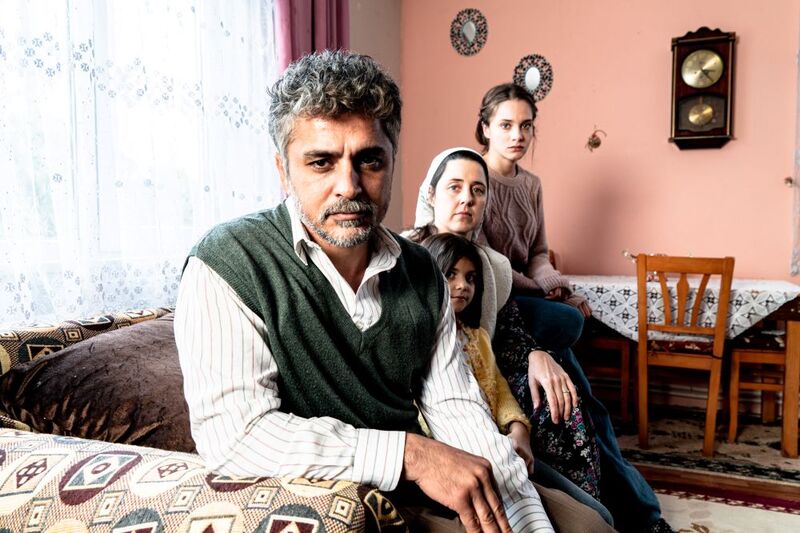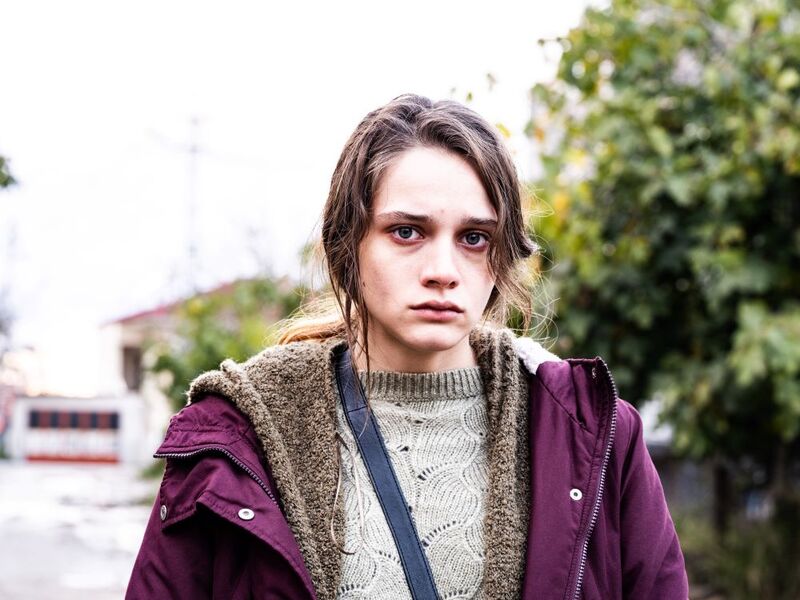Mediterrane 2024 Review: LIFE, Novelistic Philosophical Drama Tackles Loss and Redemption
Turkish director Zeki Demirkubuz weaves a tale of provincial patriarchy and existentialism, following the intertwined lives of a rural baker and a young woman after a derailed arranged marriage.

Turkish director Zeki Demirkubuz explores the theme of provincial patriarchy in his latest film, Life, extending it to a broader existential plane to which the title alludes with a touch of irony.
Through a meticulously structured sequence of scenes, Demirkubuz follows the lives of the film’s two protagonists: Riza Uysal (Burak Dakak), a young baker living in rural Turkey, and Hicran (Miray Daner), a beautiful young woman.
The film begins with Riza’s grandfather reacting to the news from Hicran’s father, Mehmet, that Hicran has disappeared. This revelation jeopardizes the arranged marriage between the young couple, who have barely met.
Mehmet, impulsive and enraged, vows to kill his daughter and, if she is already dead, to feed her to dogs. Despite Riza’s grandfather’s attempts to calm the furious patriarch, his efforts are in vain.
Riza’s grandfather then breaks the news to his grandson, whom he calls "son" due to having raised him from a young age after he was orphaned. Together, they work in a small bakery alongside Riza’s talkative uncle. Despite the upheaval, their daily routine remains unchanged after the news that the wedding is off.
Despite initially shrugging off the failed wedding with a virtual stranger, the situation begins to consume Riza, shifting his attitude from indifference to obsession. He leaves his grandfather's bakery and ventures to Istanbul, where Hicran was believed to be heading. In Istanbul, he finds a relative with whom he stays while he combs the city in a desperate attempt to find Hicran and understand why she left (him).
This ordeal unfolds through a series of carefully orchestrated vignettes. Demirkubuz avoids traditional exposition or setup, instead diving directly into each scene, creating a disjointed sense of time.
This narrative style makes it challenging to discern whether events transpire over days, weeks, or even longer periods. The director transposes a novelistic approach to storytelling into the film medium, with Dostoevsky being a significant influence on Demirkubuz’s body of work.
Turkish director Zeki Demirkubuz is renowned for his examinations of human nature and existential despair, motifs that persist in Life. Demirkubuz's filmography, including works like Innocence and The Waiting Room, consistently delves into themes of isolation, moral ambiguity, and the human condition.
His latest film, with its extensive three-hour runtime, maintains this focus, offering an unhurried and piercing gaze on the ironies of life. The meditative story is suffused with a sense of tragedy, exploring themes of love, loss, and redemption.
While the dynamics of a patriarchal structure serve as the film's starting point — with Hicran vanishing without explanation and her pursuit of freedom likely motivated by a desire to escape an arranged marriage pressured by her father — Demirkubuz expands into broader themes. After months of wandering, Riza eventually collides with Hicran, who has assumed a different name and become enmeshed in the city's underworld.
Although Demirkubuz employs elements typical of a suspense thriller, such as Riza meticulously tracking Hicran and the people around her, the film avoids conventional execution. Riza’s grandfather, having learned from a friend that Riza is carrying a pistol, urges him to abandon his pursuit.
Despite this, Riza's journey is portrayed through carefully selected scenes featuring long takes and a mix of dialogue-heavy interactions and silent observations. Ultimately, male rage does not provide the resolution; instead, the narrative evolves into a more philosophical exploration of their circumstances.
Nuri Bilge Ceylan might come to mind when watching Life, but mainly due to its extended runtime. Ceylan’s About Dry Grasses features a more structured plot, whereas Demirkubuz focuses on fewer scenes that at times evoke the poetics of the Romanian New Wave, albeit with more visually polished, static shots and ultra-slow pans.
Midway through the film, Demirkubuz shifts the focus to Hicran, revealing her as a complex personality beneath a stoic façade. Although Life touches on elements of social realism, it transcends that genre. Hicran remains an enigmatic figure, whether she is the elusive object of Riza's search or the central character in various scenes.
The director employs a curiously elliptical narrative style that distorts the passage of time, retaining key turning points while de-escalating dramatization. This approach maintains an obsessive focus on the leading characters, particularly Hicran, who becomes even more inscrutable when she is on screen than when she is off.
The narrative form chosen by Demirkubuz is particularly intriguing. Leaning towards a novelist's style, the long takes focus on seemingly banal dialogues that conceal multiple layers, creating a kind of misleading enigma. While the mystery is ever-present, it revolves around the mundanity of reality.
One persistent mystery is the rage-filled father of Hicran, who loudly expresses homicidal tendencies towards his daughter, yet they end up in a bizarre domestic coexistence. Hicran shows more respect for her father than her overprotective mother. Mehmet emerges as a strangely tragic figure, a man broken by his own worldview, yet paralyzed into inaction.
Life is an intriguing piece of cinema: slow-burning, philosophical, and less depressive, despite its existentialist tendencies. The film's tone remains stoic, with various shades and even darkly humorous one-liners unexpectedly dropped along the way. Demirkubuz's latest work is intriguing in the formalism and storytelling approach based on ellipsis, and a seemingly mundane situation wrapped in a poetical naturalism.
Life nabbed the Best Feature Film award at the Mediterrane Film Festival 2024.









